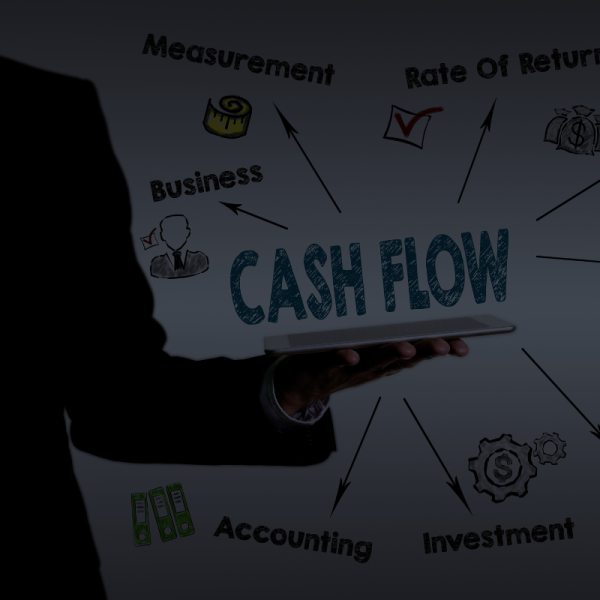1.0. Introduction to Trade Payables Optimization
1.1. What Trade Payables Mean for SMEs
In small businesses, trade payables are what the business owes to its suppliers. It’s about paying for things a business needs to keep running, like materials or services. Managing these payables well is essential. It helps maintain good supplier relationships and ensures the business has enough money to operate smoothly. Data analytics can help in managing trade payables.
Data analytics helps businesses make smart decisions by looking at information in detail. For small businesses, this can be a game-changer. For example, a study showed that small businesses using data analytics increased their earnings by 15%. By understanding data, businesses can determine the best time to pay their bills, save money, and plan for future cash needs.
1.2. Applying Data to Manage Bills
Small businesses can handle their bills better using data analytics for their payables. This could mean figuring out the best times to pay suppliers. For instance, a small shop might use data to decide when to pay suppliers to save money and keep enough cash. This way, small businesses can monitor their finances, reduce risks, and build strong ties with suppliers.
2.0. Understanding Data Analytics in Finance for Small Businesses
2.1. Choosing the Right Data Tools
For small businesses, picking the right tools for data analytics is essential. They should be easy to use and not too expensive. Popular choices include simple programs like Microsoft Excel and more advanced ones like QuickBooks, which many small businesses find helpful.
2.2. How Data Helps in Making Smart Money Choices
Using data analytics changes how small businesses handle what they owe to others (trade payables). By looking at past payment data, a business can guess how much money it will need in the future. This helps them plan better and stay out of financial trouble. It’s a bit like checking the weather before planning a picnic.
2.3. Important Numbers to Watch
Small businesses should keep an eye on specific numbers, like:
- how long it takes them to pay their bills (Days Payable Outstanding) and
- how often they pay their bills (Accounts Payable Turnover Ratio).
If they pay their bills quickly, it might mean they’re doing a good job managing their money. Understanding these numbers can help a business make better decisions, like when to buy supplies or ask for discounts.
3.0. Using Data to Work Better with Suppliers

3.1. How Small Businesses Can Check on Suppliers with Data
Small businesses need to know how suitable their suppliers are. Data analytics helps with this. It’s like a report card showing suppliers how often they deliver on time or if their products are good. This way, businesses can see which suppliers are doing a great job and which ones need to improve.
3.2. Making Stronger Connections with Suppliers Using Data
Data doesn’t just show who’s doing well or not. It also helps businesses and suppliers work better together. Businesses can find ways to help each other by looking at the data. It could be getting a discount for buying more stuff or setting up better payment times. It’s like making a friendship stronger by understanding each other better.
3.3. How Data Helped Businesses with Their Suppliers
There are real examples of how this works. One small company that makes things found out, by looking at data, that getting parts from a supplier closer to them made their work faster by 30%. Another small business, a store, used data to choose the best suppliers. This helped them cut down costs for keeping items in stock by 20%.
Small businesses can use data to check suppliers’ performance and build stronger relationships. This helps the business run smoother and can even save money.
4.0. Payment Patterns and Cash Flow Management
4.1. Understanding Payment Trends
Small businesses need to be smart about how they spend their money. Using data analytics, they can look at past payments to determine how to manage their cash. For example, a small shop might spend more money before holidays. Knowing this helps them plan their spending better.
4.2. Planning When to Pay Bills
Data helps small businesses decide the best time to pay their bills. They can choose times that save them money by looking at when they have to pay their suppliers and comparing it with past payments. For example, paying some suppliers early might lead to discounts, while for others, it’s better to stick to the usual payment time.
4.3. Deciding Between Early Payments and Saving Money
Sometimes, small businesses can get a discount if they pay early. But they also need to have enough cash for other things. Data analytics helps them make this decision. For example, if paying early saves 2%, but money is tight, it might be better to pay later. If they have enough cash, paying early to save money makes sense. Their data showed that one small business saved 5% on supplies by paying early.
Small businesses can use data to decide when to pay their bills. This helps them save money and keep enough cash for other essential things, which is very important for growing their business.
5.0. Using Data to Stop Fraud in Small Business Payments
5.1. Finding Fraud with Data
SMEs face fraud risks in their payments. Data analytics is a powerful tool to spot and stop this. It helps businesses notice strange payment patterns and odd transactions, which can be signs of fraud. For example, it might be fishy if a business keeps making payments to the same vendor too often or has unusually large payment sizes.
5.2. Stopping Fraud Before It Happens
It’s not enough to find fraud; SMEs must also prevent it. Using data analytics, businesses can figure out what average payments look like and spot the weird ones. This can involve setting up rules, like getting an alert for payments above a certain amount or to new vendors, which can be checked more closely.
5.3. Real Stories of Stopping Fraud
Many small businesses have used data analytics to stop fraud in payments. For instance, a small shop found out someone was making odd payments to a regular supplier, thanks to their data system. Another business stopped a scam where someone sent them fake bills to pay twice. By using data analytics, these businesses saved themselves from losing a lot of money.
Small businesses can use data to catch and stop fraud in their payments. Using data smartly is essential to keeping money safe and ensuring the business can keep going strong.
6.0. How Data Analytics Helps Small Businesses Save Money in Trade Payables
6.1. Smart Deals with Suppliers Using Data
Small businesses can make better deals with their suppliers using data. Imagine a small bakery. Looking at its past flour orders, it might see that it orders more flour in certain months. With this information, the bakery can ask for discounts or better payment terms when buying a lot of flour at once.
6.2. Making Paying Bills Faster and Cheaper
For small businesses, paying bills quickly and without extra cost is essential. Data analytics helps find where things are slow or too costly. For example, a small shop might find out that using paper for billing takes too long. By switching to a computer system for bills, it can pay faster and save money.
6.3. Seeing How Much Money Data Analytics Saves
Using data analytics can cut costs for small businesses. Studies from McKinsey show that small businesses using data in their billing can cut costs by 20% and pay fewer late fees. This shows data analytics is essential in managing money and growing a business.
Data analytics is super helpful for small businesses in managing their payments. It helps get better deals, pay bills faster and cheaper, and save money.
7.0. Making Data Analytics Easy for Small Businesses in Trade Payables
7.1. Easy Ways to Start Using Data Analytics
Small businesses can use data analytics in trade payables without it being too complicated. First, decide what you want to achieve, like getting better at managing payments. Pick easy tools to use and help with automatic reports and forecasting.
7.2. How to Put Data Analytics to Work
To make the most of data analytics, small businesses should:
- Train Your Team: Make sure everyone knows how to use the new tools.
- Keep Your Data Right: Always check your data so it’s correct and helpful.
- Start Simple: Begin with the basic features of analytics tools and then slowly try more advanced ones.
- Fit with What You Have: Choose tools that work well with the financial systems you already use.
7.3. What’s Next in Data Analytics
Data analytics is changing with more AI and machine learning. These can guess future payment trends and spot problems early. Also, blockchain technology might make transactions safer and clearer.
Ultimately, small businesses can benefit from data analytics in managing their payments. If they focus on easy-to-use tools, keep their data accurate, and start slowly, they can improve their finance and help their business grow.
8.0. Conclusion: Understanding the Future of Data Analytics for SMEs
8.1 The Importance of Digital Transformation in Payables
Small businesses must embrace digital tools for managing bills and payments to stay competitive and improve financial management.
New, user-friendly data analytics tools are being developed specifically for small businesses, making understanding and managing payment patterns easier.
8.2 The Role of Predictive Analytics and AI in SME Decision-Making
Predictive analytics and AI are advanced tools that anticipate payment trends and identify anomalies, aiding in strategic decision-making and fraud prevention.
As data becomes increasingly integral to business operations, small businesses must develop data literacy to leverage emerging technologies effectively.
8.3 The Broader Impact of Data Analytics on SMEs
Adopting data analytics in trade payables is a strategic move for small businesses, enhancing financial efficiency and preparing them for a data-driven future.
FAQs on Data Analytics in SME Trade Payables
1. What are the best data tools for small businesses?
QuickBooks and Odoo are great choices. They make it easy to keep track of payments and understand your business’s money matters.
2. How Does Analytics Help with Supplier Deals?
It shows your payment history and how suppliers are doing. This can help you talk to suppliers about changing payment times or getting discounts.
3. Finding Fraud in Payments with Analytics?
These tools can spot fraud by noticing if you pay a bill twice, see strange payment amounts, or send money to unknown suppliers. Some can even match your payments with known fraud patterns to stop fraud early.
4. Can Analytics Make Things Better with Suppliers?
Yes! It ensures you pay suppliers on time, which builds a good relationship. It also helps you understand how suppliers are doing, which can lead to better teamwork and lower costs.
About the Author
Ajibola Jinadu is a distinguished Fellow of the Association of Chartered Certified Accountants (ACCA) and the Institute of Chartered Accountants of Nigeria. He earned his bachelor’s in applied accounting from Oxford Brookes University, UK.
With a rich career spanning 8 years at Deloitte and another 7 as a CFO, Ajibola has effectively partnered with leadership teams to craft financial strategies. These strategies enhanced the company’s adaptability in a fluctuating market.
An active contributor to his website, myCFOng, Ajibola pens insightful articles about small business management and financial tactics. His expertise has also made him a go-to speaker at industry events, where he delves into the importance of agility in financial planning for small businesses.
myCFOng
Welcome to myCFOng, the trusted hub for small business financial wisdom. Our team comprises seasoned professionals who merge hands-on experience with deep theoretical understanding.
At myCFOng, quality isn’t just a buzzword—it’s our signature. Every piece we publish undergoes thorough research, is grounded in data, and gets double-checked for accuracy. The frequent nods from industry giants speak volumes about our respected position in the sector.
With myCFOng, we’re on a mission: to equip small businesses with the financial tools and knowledge essential for today’s competitive landscape.
Disclaimer
This article offers general insights and shouldn’t be taken as financial advice. The perspectives shared are the author’s alone.
Consulting with a qualified expert or financial advisor is essential for tailored guidance, especially when addressing your unique financial concerns.







[…] Predictive analytics can do things like guess if there will be money problems or if the market is going to change. This helps small businesses get ready and not be surprised. […]